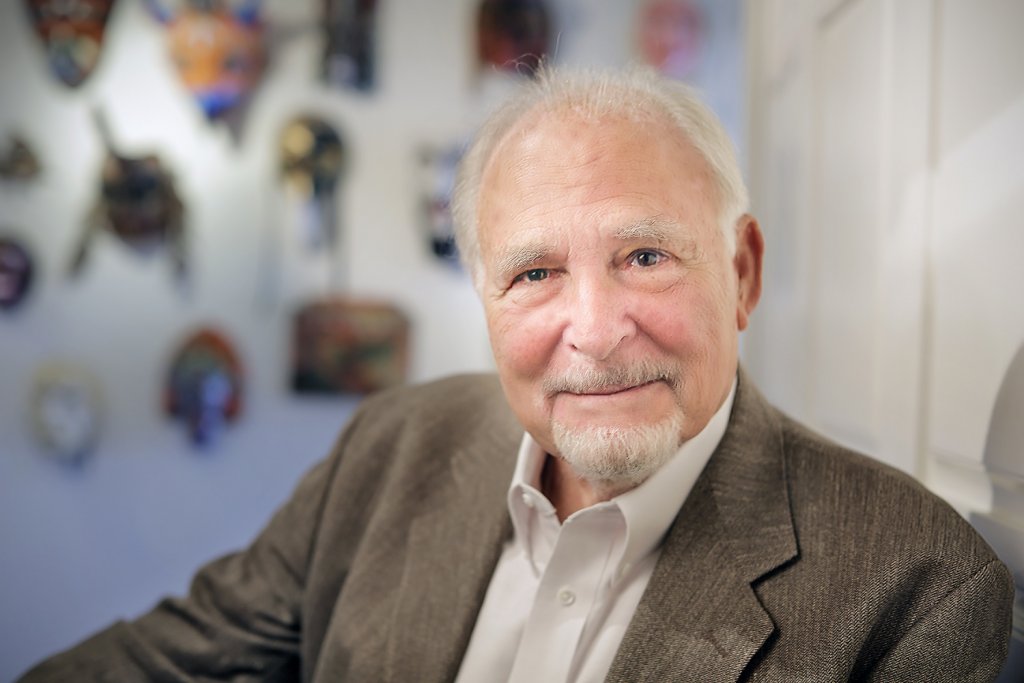This article is dedicated to a great American psychologist, Paul Ekman. He’s been a pioneer in the study of human emotions and their relationship to facial expressions. In fact, he occupies a prominent position on the list of the most cited 20th-century psychologists.
Ekman created the Atlas of Emotions, which contains more than 10,000 facial expressions. His most notable discovery was micro-expressions. These are specific expressions that appear on the human face for mere fractions of a second. This discovery was the result of his seminal research on the biological correlates of specific emotions.
In addition, he’s provided invaluable material for the study of all aspects of social deception. He studied why people lie and how to detect those lies by the recognition of micro-expressions.
His professional career
Paul Ekman was born in Washington, D.C. in 1934. He studied at both the University of Chicago and New York University. In 1958, he obtained a doctorate in clinical psychology. After completing his studies, he became a consultant at the Langley Porter Psychiatric Hospital and Clinics.
Later, Ekman became a professor of psychology of the Department of Psychiatry at the University of California, San Francisco. He retained this position until 2004.
Ekman has received numerous awards for his research work. As a matter of fact, the National Institute of Mental Health awarded him the Research Scientist Award six times.
Paul Ekman and non-verbal communication
In 1957, Ekman published his first book. Among other subjects, it concentrated on non-verbal communication. In this book, Ekman claimed that facial movements, which create different facial expressions, could be studied with empirical research.
After this first book, he concentrated on developing different techniques for measuring non-verbal communication. In fact, at this stage of his career, his ultimate goal was to measure non-verbal communication empirically.
His colleague Silvan Tomkins persuaded him to expand his studies on non-verbal communication from the body to the face. It was then that Ekman discovered that humans are capable of performing more than 10,000 facial expressions. Of these, only 3,000 are related to emotions.
Universal expressions of emotion
In the 1950s, following Darwin’s findings, scientists believed that facial expressions, along with their meanings, were biologically determined and universal.
Paul Ekman and his research partner, Wallace Friesen, confirmed that some expressions are, indeed universal. These include fear, anger, sadness, joy, and surprise. Nevertheless, some expressions are determined by the cultural environment. People learn these expressions.
Their studies concluded that some people only showed certain emotions under specific cultural rules. Such rules tended to obscure the concept of emotions being universal. Indeed, Ekman discovered that people’s expression of some emotions was regulated by specific social prescriptions. These prescriptions laid down rules as to who could show which emotions to whom and when.

Detecting lies
During his long research career, Paul Ekman studied deception and its social aspects. For example, in one project, he studied around 200,000 people from all walks of life. He found that, out of all of them, only 50 could detect a lie without any training.
He called this study the Wizards Project. In fact, Ekman affectionately christened the people who were able to detect lies “Truth Wizards”. Ekman subsequently expanded his research to the social influence of lies and the importance of deception for emotional well-being.
Paul Ekman and his contributions to psychology
Filmmakers based a popular TV series entitled Lie to Me on Paul Ekman’s work. The protagonist of the series is a doctor trained to detect deception. Ekman was the inspiration behind this character.
Micro-expressions are small involuntary changes in facial expressions that indicate anxiety or discomfort. In fact, Ekman created a coding system (FACS) that classified each facial and body expression. Undoubtedly, his work leaves an important legacy to modern psychology. In particular, his research concerning whether people are telling the truth or not.
The post Paul Ekman, the Lie Hunter appeared first on Exploring your mind.



















Comments